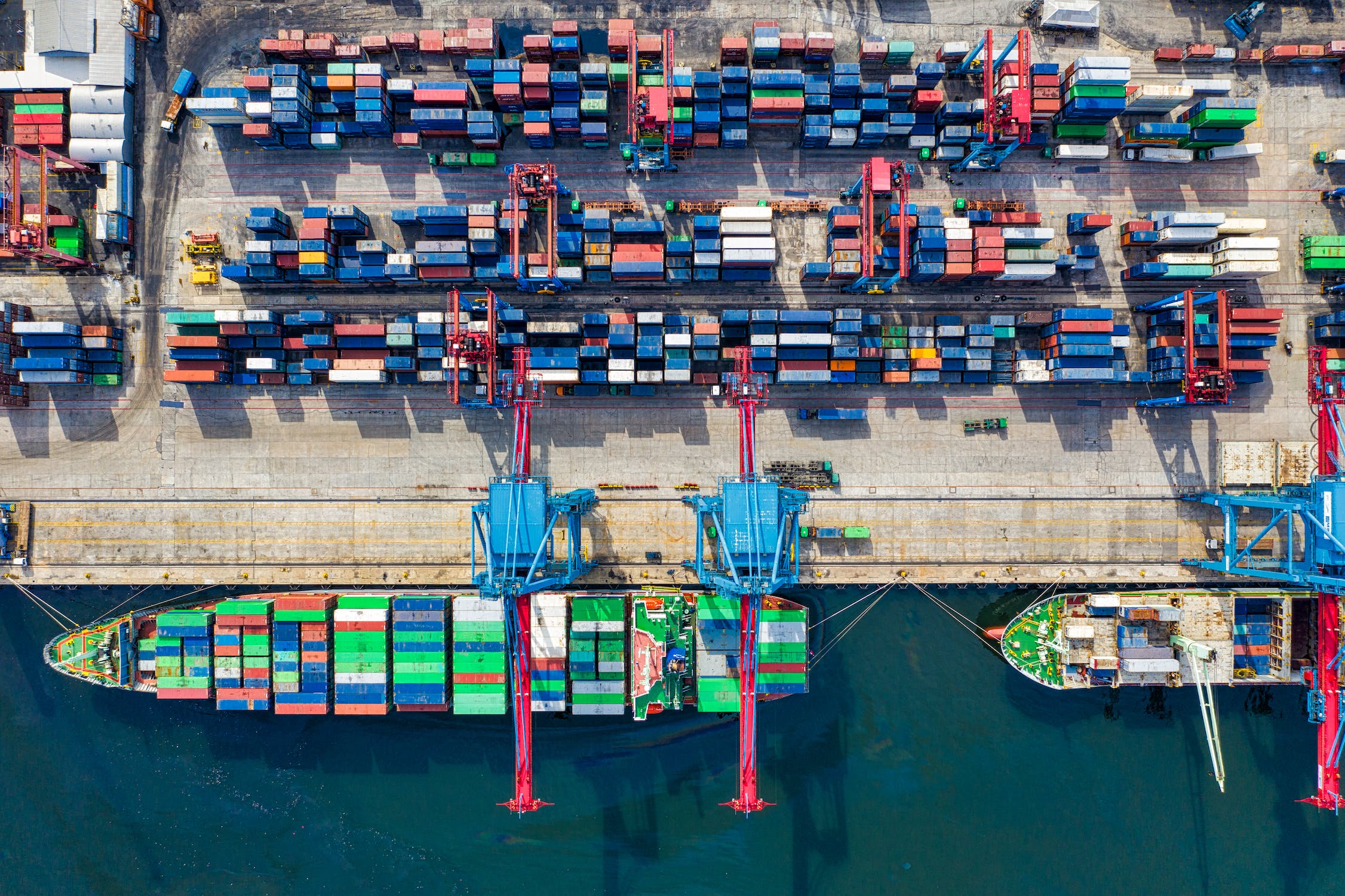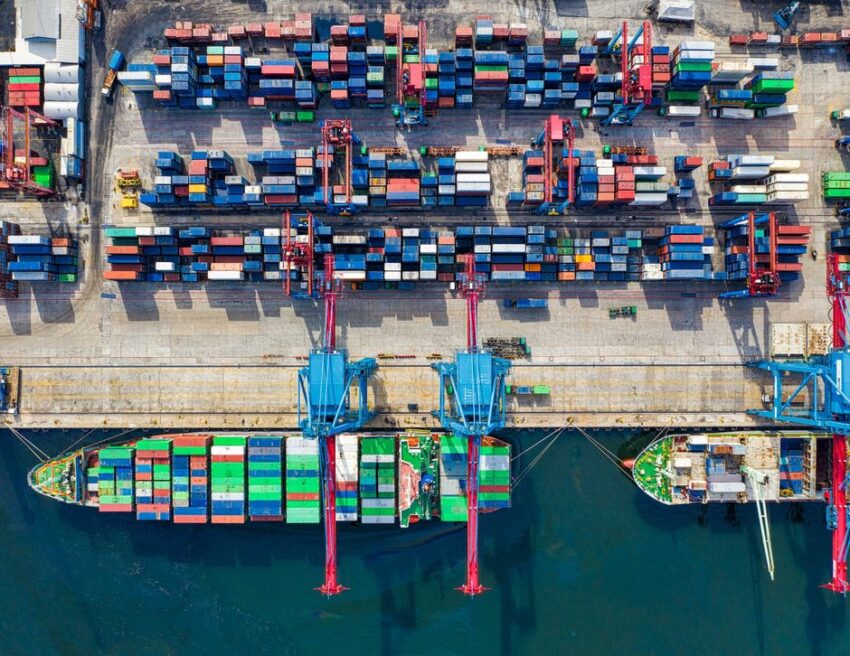While shipping the cargo, independent freight forwarders like you need to make sure that the cargo travels safely to the next destination within the shortest period and at a cost-effective rate. Nevertheless, when it comes to choosing the right container carrier for safe and on-time transit of goods, shipping companies often find themselves in a dilemma. There are several factors freight forwarding companies need to consider before selecting the right shipping carrier. In today’s post, we have provided a number of practical tips that logistics companies need to consider while selecting a container carrier and which factors to keep in mind before making the right decision.

Factors independent freight forwarders should consider before selecting a container carrier
-
Services offered and ports covered
The first and foremost criteria for choosing the right container carrier is whether the company offers services in both the origin and destination ports where you need services. If you are shipping to a remote area or to a minor port then at least make sure that the carrier provides services in areas that are as close as possible to your required locations. Given the level of international port connectivity in our times, it will not be hard for you to find a carrier that will serve your required port of call. Even if you can’t find a carrier providing direct service, there will be other carriers who will help you send your cargo to the desired port.
-
Direct or transshipment services
Most ports, regions, and countries can be accessed by several routes which is why the carriers usually offer multiple services at a single post but by following different routes. For example, container ships from Asia to the ports on the US East coast can move via two routes- the Eastbound route via the Panama Canal or the Westbound route via the Suez Canal. Since the expansion of the Panama Canal, it can accommodate ships of up to 15,000 TEUs. Therefore, sea freight forwarders now have the option to choose from two services by the carrier to the same destination. They just need to pick the service that better fits their requirements.
Another example in this regard is the Suez Canal route for moving cargo from Asia to Europe and vice-versa. Although moving through the Suez Canal implies extra expenses, it allows the shippers to save considerable time by eliminating the need to follow the longer route via the Cape of Good Hope. Nevertheless, during the blockage of the Suez Canal, some carriers used the Cape of Good Hope route to keep the cargo moving. Simply put, you as the independent freight forwarder need to weigh the pros and cons of the routes by considering important factors like the nature of cargo, its urgency, ocean transit time, freight rates, schedule reliability, onward connection, etc.
-
Cost-effectiveness
The cost-effectiveness of the carrier is yet another important deciding factor that independent freight forwarders should consider. Even though lower rates are surely more attractive from the point of view of the forwarder, they must be carefully considered keeping into account several other factors. To begin with, you need to judge if the level of service is at par with the quoted rates, the estimated transit time, and losses in the event of service delivery failures. Keep in mind that cheaper carriers do not necessarily guarantee the best service. Although the lower freight rates will help you save money initially, they can prove more costly for your business in the long run.
Moreover, it is important to check the track record of the carrier when it comes to customer services. This will help you decide whether to go for a carrier offering low rates or find one that charges more but has a better reputation and track record. You have to consider factors like extra inventory, expiry date, contingency planning for delays, risk of damages, dissatisfied clients, etc before deciding where to go for a carrier with a lower rate or not.
-
Delivery time
This is perhaps the most important factor that can influence the decision of the shipper while choosing the container carrier. For instance, if you are moving perishable commodities then you surely need to find a carrier that offers minimum transit time. The same goes for high-value cargo when shorter transit time translates to reduced risks of damage, or theft. Additionally, delivering the cargo on time generally allows you to have a good relationship with your clients, and acquire new leads.
Some carriers these days especially in the North-South and Transpacific trade routes are offering premium service via specialized vessels that guarantee shorter transit time. However, the lesser the transit time, the higher will be the freight rates and vice-versa. For this reason, you need to wisely make a decision depending on the nature of the cargo, and its priority before deciding if getting it shipped faster would really translate to a monetary gain.
-
Schedule reliability of the carrier
The reliability of the sailing schedule of the vessel is one important factor that determines the steadiness of the global supply chain. In normal times, the schedule reliability of the carriers should be consistent otherwise the reputation of the shipping company will be at stake. Additionally, it will also complicate supply chain planning for all the stakeholders in the shipping process.
This is why you need to check the historical schedule reliability of the carrier you are about to select. Keep in mind, that this is by no means a guarantor for timely delivery since several external factors also control schedule reliability such as congestion, equipment shortage, availability of workforce at the ports, etc. Nevertheless, obtaining the schedule reliability of the carriers for each trade lane from market intelligence agencies will help with better logistical planning.
-
Possibility of a long-term relationship with the carriers
The success of international freight forwarding companies considerably depends on a strong relationship with their carriers. This allows logistics companies to provide a global network of reliable transportation services. Mutually beneficial relationship with the carriers fosters long-standing advantages which is why many sea freight forwarders seek to maintain a good relationship with the carriers and even establish contracts with them. However, independent freight forwarders with a relatively new and small-scale business then instead of establishing a good relationship with a carrier you need to focus on finding carriers who will move your cargo at the cheapest rate.


